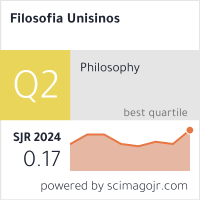Can jinn be a tonic? The therapeutic value of spirit-related beliefs, practices and experiences
DOI:
https://doi.org/10.4013/fsu.2016.172.12Resumen
Religion and spirituality are increasingly associated with mental health, yet spirit-related practices, beliefs and experiences (SPBEs) are regarded with more suspicion. This suspicion is misplaced, and worryingly so, since, I argue, it shuts down a potentially therapeutic avenue in relation to anomalous experiences such as hearing voices and sensing the presence of the dead. A presupposition of this argument is that anomalous experiences are not inherently pathological but can become so as a result of the way they are interpreted and reacted to. While this claim is not new in itself, I will provide a philosophical foundation for it by defending a ‘contextualist’ view of pathology in the context of anomalous experiences against ‘inherentist’ alternatives, according to which some or all instances of anomalous experiences are inherently pathological.
Keywords: religion, spirituality, auditory hallucinations, psychosis, pathology, mediumship, schizophrenia, hearing voices, mediumship, spirit possession, healing rituals.
Descargas
Métricas
Descargas
Publicado
Cómo citar
Número
Sección
Licencia
Concedo a revista Filosofia Unisinos – Unisinos Journal of Philosophy o direito de primeira publicação da versão revisada do meu artigo, licenciado sob a Licença Creative Commons Attribution 4.0 (que permite o compartilhamento do trabalho com reconhecimento da autoria e publicação inicial nesta revista).
Afirmo ainda que meu artigo não está sendo submetido a outra publicação e não foi publicado na íntegra em outro periódico e assumo total responsabilidade por sua originalidade, podendo incidir sobre mim eventuais encargos decorrentes de reivindicação, por parte de terceiros, em relação à autoria do mesmo.










